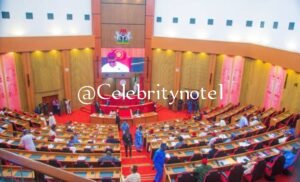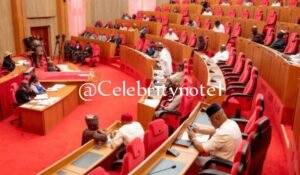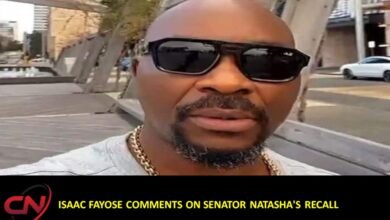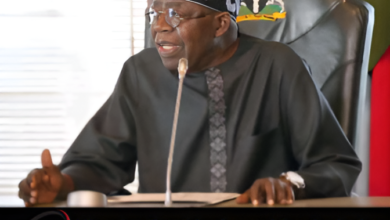The F!ght Over Tax Reform: North vs. FG
A big f!ght is brewing between the Federal Government (FG) and Northern leaders over Nigeria’s proposed tax reform. At the heart of the drama is a change in how Value Added Tax (VAT) is shared. The FG wants VAT revenue to go to states based on where the goods and services are consumed or where the businesses generating the tax are located. Northern leaders, however, are not happy about this idea.

The Fight Over Nigeria’s Tax Reform: North vs. FG
Advertisements
A big fight is brewing between the Federal Government (FG) and Northern leaders over Nigeria’s proposed tax reform. At the heart of the drama is a change in how Value Added Tax (VAT) is shared. The FG wants VAT revenue to go to states based on where the goods and services are consumed or where the businesses generating the tax are located. Northern leaders, however, are not happy about this idea.
Why the North Is Worried
For years, VAT has been shared nationwide, meaning even states that don’t generate much VAT still get a good slice of the pie. But this new system, called the “derivation principle,” would give more VAT to states like Lagos and Rivers, where most businesses are based, and where people spend the most.
Northern governors say this would leave their states with less money. Senator Kawu Samaila from Kano South District thinks it’s about more than just VAT. He says the North faces deeper economic challenges that need broader solutions.
Dr. Majeed Dahiru, a public affairs analyst, explains that Northern leaders’ main issue is the sharing formula, not the idea of increasing taxes. If VAT is distributed based on where it’s generated, Northern states will lose out because their consumption and business activities are lower compared to the South.
What the FG and Supporters Say
Supporters of the reform argue that the current system is unfair. For example, some Northern states ban alcohol but still benefit from the VAT collected on alcohol sales in Southern states.
Baba Yusuf, a policy analyst, believes the reform would push states to be more productive and self-reliant. He’s disappointed by the Northern leaders’ “short-term thinking,” saying they should focus on creating value instead of relying on what others generate.

Others like Dr. Muda Yusuf, a former Director General of the Lagos Chamber of Commerce and Industry, see the debate as more political than economic. He says it’s natural for Northern leaders to push back since the new system would leave them with less money. But, he warns, “We need to manage this issue carefully.”
Why Nigerians Are Skeptical
Many Nigerians don’t trust the government’s reforms. Dr. Ibrahim Zikirullahi of CHRICED says people are tired of hearing promises without results. He points out that after the fuel subsidy was removed, things got worse instead of better. Prices keep going up, and the poor are suffering the most.
Dr. Zikirullahi adds that this VAT reform is just another way for the government to collect more money, while ordinary Nigerians get little in return. “The government keeps asking us to sacrifice, but we see them wasting money on themselves,” he said.
What’s the Way Forward?
Despite the tensions, there’s still hope for a peaceful resolution. Senator Samaila has called for dialogue, urging everyone to listen to each other and find common ground. “This isn’t about North versus South. It’s about finding what works for all Nigerians,” he said.

At the end of the day, this fight over VAT reform could change Nigeria’s economic future. But will it unite the country or deepen the divide? One thing is clear: It’s time for leaders to think beyond regional interests and focus on building a fair and sustainable system for everyone.
What do you think? Should VAT revenue be shared based on where it’s generated, or should the current system stay? Share yourt houghts below.









